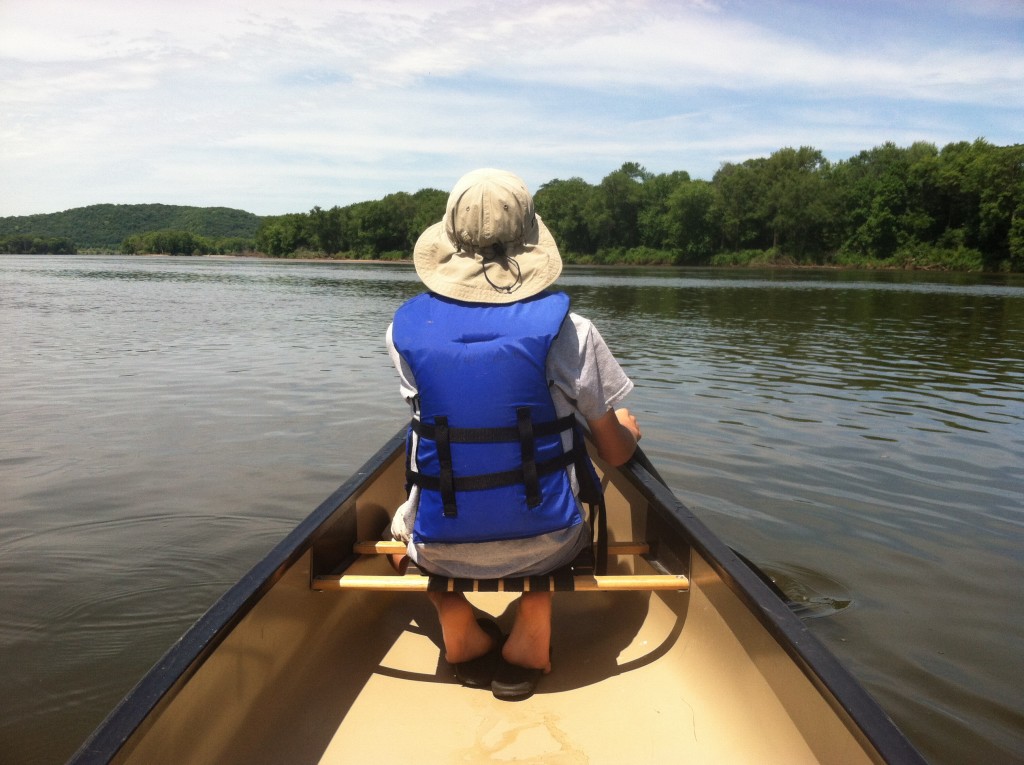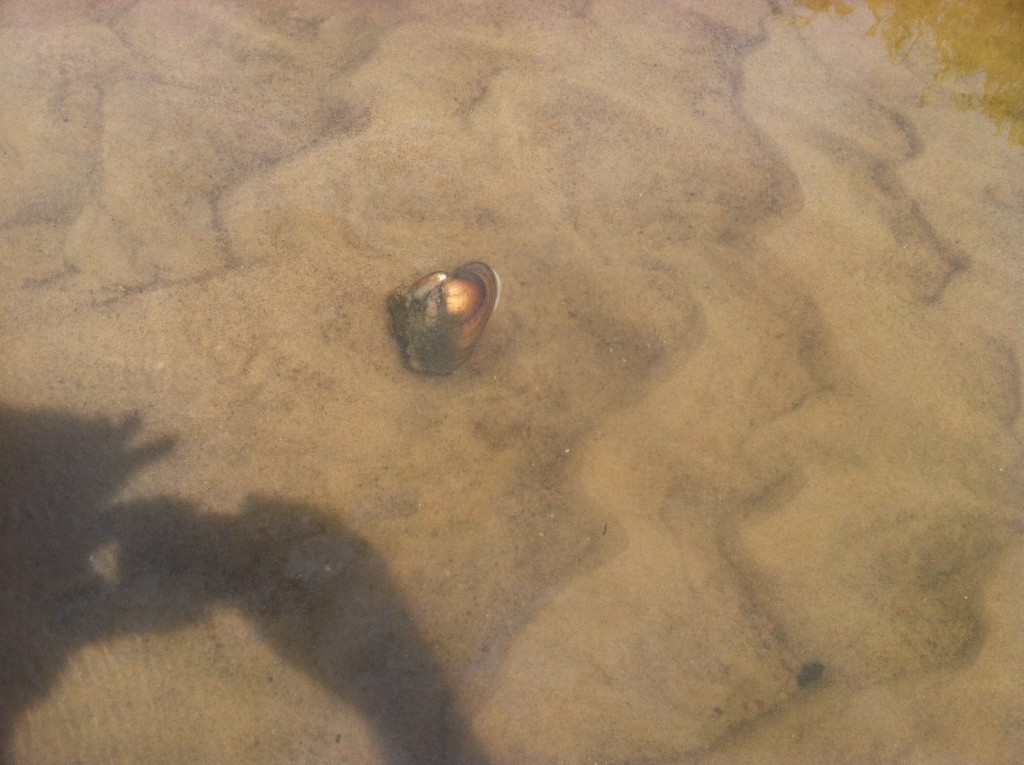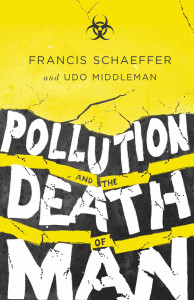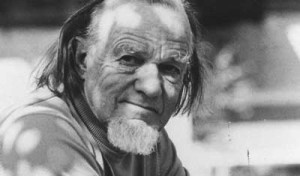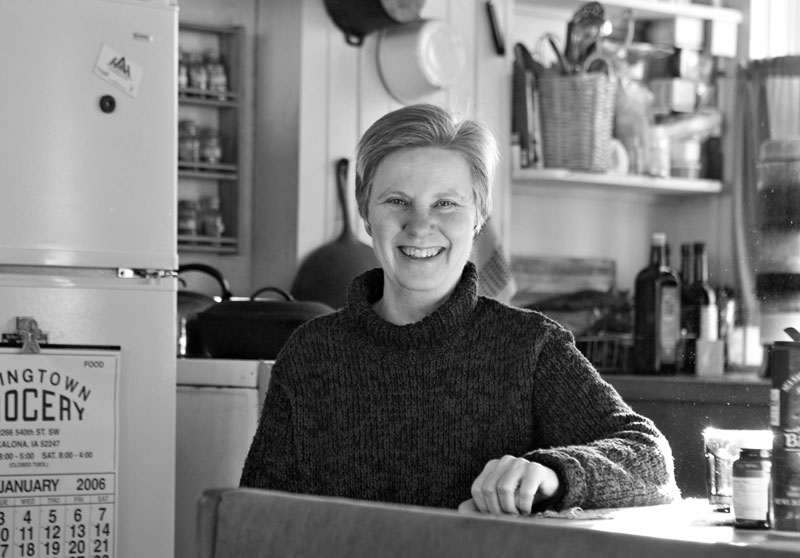Having and living out a whole faith ultimately depend on our willingness to open our hearts. Are we ready to have our convictions reshaped by God, even those convictions that have grown out of our culture and are deeply rooted in our emotions?
We tend to pick and choose where God’s message applies and where it doesn’t. When it applies to something we intuitively care deeply about, we see things in intense blacks and whites. When it applies to something we don’t care deeply about because of our culture or self-interest, we ignore it or rationalize how we and our community are acting toward it.
Case in point – abortion.
The controversy over the Planned Parenthood videos has again brought abortion into the forefront. It has also again revealed how selective people can be in applying core ethical concerns. Pro-choice supporters, many of whom would rail against the mistreatment of minorities and the polluting of rivers, don’t want to squarely face the horror of the violence done against a baby in a womb. The ability of Planned Parenthood officials and their supporters to use abstract, technical language to talk around this reality is deeply disturbing.
But far too many Christians who are outraged by the Planned Parenthood videos and by abortion in general, ignore and even acquiesce to daily violence against poor, vulnerable communities and against God’s earth. In fact, many of the same people who are speaking against abortion in shrill voices are just as likely to be comfortable with and even to advance ways of using God’s earth that systematically cause suffering to people and vulnerable living beings.
Did you know that a child’s lungs begin to develop in the womb but are not fully developed until they turn eight years old? In what way is it right to desire to protect that child’s life and lungs in the womb but not when they are out of the womb and vulnerable to pollution?
Selectivity in where we advocate for love and compassion and where we don’t is like a tree that bears beautiful fruit on some branches but rotten, worm-filled, poisonous fruit on others.
To make this point, I want to share a list of ten ways in which abortion shares common ground with the violence done against Creation. I am not suggesting they are exactly morally equivalent and I recognize that I am ignoring many nuances. Nevertheless, I believe the extensive common ground should give us pause and compel us to desire to live out whole lives of whole faith.
The actual acts are violent and cruel: The references to the “crunchiness” of abortion and the awful images shown on signs at protests around abortion clinics jerk us out of an anesthetized calm and into the reality of the violence of abortion. What chance do soft skin and tissue have against cold, hard steel? A number of years ago, the culture critic and avowed atheist, Camille Paglia faced that reality directly when she wrote: “Hence I have always frankly admitted that abortion is murder, the extermination of the powerless by the powerful. Liberals for the most part have shrunk from facing the ethical consequences of their embrace of abortion, which results in the annihilation of concrete individuals and not just clumps of insensate tissue.”
For their part, confined animal feed operations sounds reasonable and antiseptic until you think about the experience of the animals and the lagoons of waste outside. And what about slaughterhouses where the speed of the killing line is debilitating to the workers and cruel to the animals? Or the testing of cosmetics and pharmaceuticals on animals or the ripping up of prairies with their rich plant and animal life to be farmed for ethanol and animal feed? Or mountains being leveled and forests cleared in the Appalachians with dire impacts on surrounding communities, forests, and streams?
A variety of abstract, intellectual arguments are often given by elite proponents to justify the violence being done: Here’s what Camille Paglia used for her justification for defending abortion: “The state in my view has no authority whatever to intervene in the biological processes of any woman’s body, which nature has implanted there before birth and hence before that woman’s entrance into society and citizenship.” In other words, nature unfairly failed to give women a say in the fact that they must be ones to bear babies so a woman is justified in having a child killed in her womb. Likewise, the promoters of commodity farming cry out that we must feed the world. This zealous, seemingly selfless mission is used to justify the worst features of commodity farming that result in dead zones in the Gulf of Mexico, nitrates in drinking water, the killing of soil life, and factory farms.
The inherent value of that life is denied either explicitly or implicitly: Isn’t it interesting that people justify abortion and destruction and violence to God’s world because the unborn child and the cedar waxwing and the rare plant do not have the same capabilities as an adult human? Yes, we must make distinctions, but the full value and worth of a living thing do not ultimately come from a living thing’s capabilities. They come from the fact that they are in some mysterious way God’s.
We don’t want to be confronted with the inherent violence and destruction of those acts, and the people carrying out the acts don’t want the world to see the full reality of them: Let’s face it. We avert our gaze from images of aborted babies and don’t want to look at videos of farm animals being abused. And people carrying out the acts typically want to make exposure to those realities and to the truth behind what is being done difficult. A great example has been the passing of “ag gag” laws which prohibit undercover investigations of farming operations (livestock operations, in particular) because undercover operations resulted in disturbing information and videos about how animals were actually being treated. These remind me of Herod imprisoning John because he called Herod to task for divorcing his wife and then marrying his brother’s wife.
Freedom and personal rights trump all other values: The right to do what one wants with what is one’s own (whether it be one’s body or one’s property) is asserted as the ultimate value by abortion rights advocates and by many people on the right side of the political spectrum. They both resent any restriction on what they do with their body, their land, their animals, and even their employees. Assertions of freedom and personal rights are, however, not really a justification of what is done. Instead they are a force field that negates the right of anyone else to make ethical judgments about what is done with those rights or to intervene on behalf of society’s common values.
It’s all too easy to move on as if the violence never happened: We so easily avoid the ghosts. Following violence there is a peace of sorts, and unless you use a moral imagination, the life that was or could have been fades quickly away as if it never was. And making the effort to hold onto the memory of a place that had been full of life or what the unborn child could have become takes moral energy and willingness to go into raw emotions that few of us want to deal with. One of the ways that the cross is so unusual as a symbol of faith is that it forces us to pay attention to the moment of violence and sacrifice in the story of Jesus and God. Perhaps it should even cultivate in us a heart that will not turn away from suffering and violence?
The acceptance of violence by the powerful against powerless life in particular cases contributes to a desensitization to other forms of violence in our world: I have heard the argument that routine abortion desensitizes us to a devaluing of life in general. That rings true. And how animals are raised, transported, and slaughtered in many cases around the country does, in my opinion, the same thing. It is an interesting and disturbing fact that many psychopaths first revealed their dangerous tendencies by torturing and killing animals. A cruel spirit that cannot empathize with the weak and vulnerable will show that cruelty to people and animals alike over time.
Science continues to give us an expanded view of the complexity of life even as applied science grows in its ability to carry out violence against life ever more surgically and effectively: We now know so much more about the life of the unborn child and its rapid development than we used to. Twins in the womb, for example, play with each other. Babies in the womb know when they are being sung to and when there is just background music. We know ever more about the intelligence and emotional life of many animals and other life as well. Did you know that octopi have 130 billion neurons and humans about 100 billion (and the majority of neurons of an octopus are in its arms)? We are also learning more about the complex life of soils and the dynamic interaction between soil life and plant life.
When this expanding world of scientific knowledge collides with our interests and desires, however, we tune it out. And when we learn in the Planned Parenthood video that there are ways to extract the body of a pre-birth baby intact after it has been killed so that its organs can be removed for donation, we are witnessing one of the fruits of applied science in an ever more sophisticated form. Similarly, applied science is offering us ever more sophisticated ways to get what we want out of natural life at tremendous cost. Sixty to 80 percent of pigs (as well as many cattle and turkeys) raised in the U.S. today are given ractopamine, a growth-enhancing drug, that many countries ban. It’s a beautiful thing if all you value is enhancing your profits by getting more poundage of pig for your dollar. But what about the pigs? This article notes that an FDA report has found that the drug can result in “respiratory disorders, hoof disorders, bloat, abnormal lameness and leg disorders, hyperactivity, stiffness, aggression, stress, recumbency (inability to get up) and death.” Human ingenuity combined with deadened hearts magnifies horror in this world.
The law tends to favor the powerful over the powerless. The baby in its womb. A pig in a factory farm. An endangered species being poached or its habitat gradually cut up. A stream being filled with waste and toxic chemicals. None of them can vote or make political contributions. They cannot file briefs in court. They cannot speak. The law and politics do not serve them as well as they serve the larger forces in society that do vote, do make political contributions, can speak, and directly benefit from the way the system works today. The forces of the powerful have the perpetual advantage in the world of law.
A purely economic way of looking at life decisions and how our world works readily justifies abortion and many abuses of nature. It’s hard to make an economic case for having a child. And it’s even harder to make if you’re just barely getting by and if your family’s life is already hard and even dysfunctional. There’s a parallel there with how we tend to look at a field or a population of fish. From a purely economic view, it’s hard to justify not transfroming them into things of use to people. Ironically, abortion clinics contribute to our GNP as do industrial agriculture and factory farms and extractive industriesy that deplete places and leave behind toxic legacies. Economic practicality has an inherently tension-filled relationship with Christian values. In other words, faith in the invisible hand inevitably will conflict with faith in our invisible God.
I’ve long been trying to understand what holds all of these commonalities together. A recent sermon I heard helped me do that. Amanda Rosengren, the associate pastor at the Church of the Redeemer we’ve recently begun attending, preached on the story of David and Bathsheba that you can find in 2 Samuel 11-12.
Amanda pointed out that the story of David and Bathsheba that prompts Nathan to confront David and the parable-like story that Nathan tells David to awaken his heart are both ultimately about the powerful abusing the powerless. The victims of the powerful – Bathsheba, Uriah, the poor man’s family in the story Nathan tells, and the lamb in that story – are profoundly vulnerable to the powerful. They are especially vulnerable to the powerful who feel entitled to use that power for their own benefit.
“Power, like money, is not inherently good or bad, it all depends on how it is used,” said Amanda. “In order to use rather than abuse the power we have, we first need to recognize it we need to “know our own strength.” Do we use the power we have to listen to those who lack it, or do we pay attention only to the powerful or those like us? After we listen, do we, like the prophet Nathan, use our power to speak on behalf of those who lack it, and to exert influence for the cause of justice for those who have been trampled upon? Do we have compassion for those who are victims, who are powerless, or do we blame them for their lack of power, or simply ignore them because we can? Do we use what we have been given to build up the community, or only for ourselves and what we want? Do you know your own strength?”
One of the tragedies of living in this broken world is that the complicated contexts people find themselves in can make the use of our power in a bad way seemingly the best option of many bad options. Can we live completely in loving ways without ever causing harm to others and other vulnerable living things? That is very hard. Even as we advocate for compassion and love, we must also have compassion and love for those who feel forced by reality to harm vulnerable life. And, yes, there are nuances.
Yet, we should be strong voices for the compassionate and thoughtful use of our individual and collective power. In all contexts. This means we must accept limits to ourselves and our desires for power and glory and wealth.
It is time for coherent, whole thinking and ethics across all political leanings in how we deal with all life. And whole thinking and whole ethics do not start from intellect and argument. They start from the heart. If we open our hearts to God through Jesus, our hearts will be transformed, every corner of them. Out of those transformed hearts will come a desire to use our strength and creativity for good and to avoid using it in ways that harm the vulnerable.
How can we help but be pro-life for all of life?


